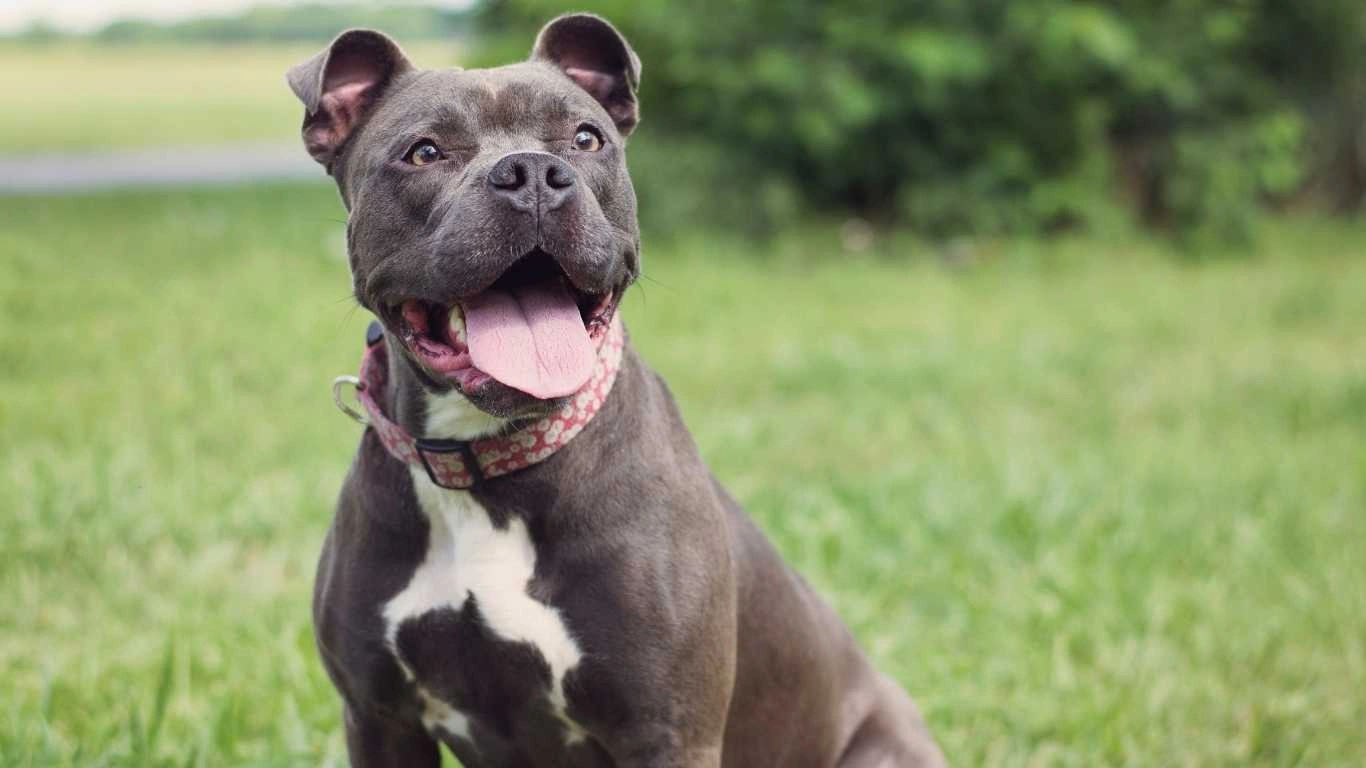Can Dogs Eat Pumpkin Seeds? Surprising Benefits & Risks Revealed
If you’ve ever wondered, can dogs eat pumpkin seeds?, you’re definitely not alone. This question pops up more often than you’d think—especially during the fall season when pumpkins are practically everywhere. Working in a pet clinic and having years of hands-on experience with animal care, I’ve heard this question from pet parents on countless occasions. And honestly, I get it. We’re always looking for healthy snacks to spoil our pups. But when it comes to things like seeds, nuts, and certain fruits, it’s not always clear what’s safe and what’s not. So let’s dive in.
Are Pumpkin Seeds Safe for Dogs?

Let me get straight to the point—yes, dogs can eat pumpkin seeds, but there are a few important caveats. First off, they need to be cleaned, roasted (plain), and unsalted. Raw seeds can spoil quickly and might carry harmful bacteria if not stored properly. And those salty, seasoned snack seeds we humans munch on? Definitely a no-go for pups.
Back when I was working at a local shelter, we used to prepare special enrichment snacks for our dogs. One of the most popular ones involved pumpkin purée and crushed pumpkin seeds. The dogs loved it, and it gave them a solid dose of nutrients without relying on processed treats.
Why Even Consider Feeding Pumpkin Seeds to Dogs?
Pumpkin seeds aren’t just tasty—they’re actually little nutrient powerhouses. They’re packed with things like:
- Zinc: Great for skin health and immune system support.
- Magnesium: Important for muscle and nerve function.
- Omega-3 Fatty Acids: Help reduce inflammation and keep your dog’s coat shiny.
- Antioxidants: Fight free radicals that can lead to chronic illnesses.
Honestly, in the clinic I’ve had clients come in with dogs suffering from itchy skin, dull coats, and even mild digestive issues. After a little chat and diet adjustment—yes, including small amounts of pumpkin or seeds—we’d often see noticeable improvements.
How Much Is Too Much?
Moderation is key. Think of pumpkin seeds as a supplement or occasional treat—not a daily staple. I usually recommend starting with:
- One to two seeds a day for small dogs
- Three to five seeds for medium dogs
- Up to a tablespoon of crushed seeds for larger breeds
Crushing or grinding the seeds before serving helps with digestion and nutrient absorption. Plus, some picky eaters are more likely to accept it mixed into their food rather than crunching it directly.
Preparing Pumpkin Seeds for Your Dog

It’s super easy to make dog-safe pumpkin seeds at home. Just follow these steps:
- Scoop seeds from a fresh pumpkin.
- Wash them thoroughly to remove any pulp.
- Spread them on a baking sheet and roast at 350°F (175°C) for about 10–15 minutes.
- Let them cool completely.
- Skip the salt, oil, and spices—your pup doesn’t need them!
I’ve actually had some pet parents make big batches and store them in airtight containers. They make a fantastic, shelf-stable reward for training sessions or just-because snacks.
Can Pumpkin Seeds Help With Worms?
This is one of those old-school remedies that surprisingly holds some truth. Pumpkin seeds contain cucurbitacin, a compound known to have anti-parasitic properties. While I wouldn’t ditch the vet-prescribed dewormer, adding ground pumpkin seeds as a preventive measure has been a folk favorite for ages. We’ve even suggested it as a supportive measure during recovery phases for dogs coming off parasite meds.
Things to Watch Out For

Like anything new in your dog’s diet, it’s important to introduce pumpkin seeds slowly. Keep an eye out for signs of allergies or digestive upset, like:
- Vomiting
- Diarrhea
- Itching or excessive licking
- Lethargy
If any of those show up, stop feeding the seeds and give your vet a ring. I’ve only seen a few cases where dogs reacted poorly, and it usually came down to overfeeding or seasoned seeds. Plain and simple is the way to go.
Personal Tip from the Clinic
One of my favorite enrichment recipes? Mix a spoonful of plain pumpkin purée with ground pumpkin seeds and a bit of unsweetened yogurt. Freeze it in a silicone mold and you’ve got a pup-approved, gut-friendly treat that supports digestion and immunity. We used this combo a lot during recovery phases for dogs with sensitive stomachs or post-surgery downtime.
Creative Ways to Add Pumpkin Seeds to Your Dog’s Diet

Once you’ve got those roasted, unsalted pumpkin seeds ready, there are so many fun ways to sneak them into your dog’s meals. I’ve experimented quite a bit—both at home and at the clinic—and here are some pup-approved favorites:
- Topper on kibble: Just a sprinkle of crushed seeds on your dog’s dinner adds flavor and nutrients.
- Mix into wet food: Especially good for picky eaters. The texture blends right in.
- Bake into homemade biscuits: I’ve used pumpkin purée and seed powder in DIY treats. Dogs go bananas over them!
- Freeze into enrichment toys: Stuff a Kong with yogurt, mashed banana, and crushed seeds, then freeze it. Keeps them busy and satisfied.
I’ve had shelter dogs with anxiety or food guarding issues calm down dramatically when given a consistent enrichment routine using nutritious fillers like pumpkin seeds. It’s amazing what a little creative feeding can do for behavior and wellness.
When to Avoid Pumpkin Seeds

So while the answer to can dogs eat pumpkin seeds is mostly yes, there are situations where it’s best to skip them. Based on experience, here’s when I’d advise pet parents to hold off:
- Pancreatitis: Dogs with a history of pancreatitis should stick to low-fat diets, and even though seeds are healthy fats, they can still be too rich.
- Chronic digestive issues: If your pup has a super sensitive gut, even ground seeds might be tough to digest. Start slow or talk to your vet first.
- Allergies: Rare, but I’ve seen a couple dogs react with itchy skin or loose stools. Always test in tiny amounts first.
- Obesity concerns: Seeds are calorie-dense. Keep them in check if your dog’s on a weight management plan.
In fact, one of my senior clients had a Chihuahua with chronic pancreatitis, and while the owner was excited to try pumpkin seeds after reading about the benefits online, we quickly realized it wasn’t a good fit. The dog’s condition flared up, and we had to pivot to other digestion-friendly supplements.
Talk to Your Vet (Yes, Really!)
It might sound like overkill to some, but I always tell clients to run new food items—especially supplements—by their vet. Every dog has different needs, and while pumpkin seeds work great for many, they’re not universally ideal. I’ve worked closely with veterinary nutritionists in shelter settings and trust me, even small tweaks can make a big difference in outcomes.
Can Dogs Eat Pumpkin Seeds Daily?

This one comes up a lot, and I totally get why. When something’s healthy, we want to give our dogs more of it. But here’s the scoop: daily doesn’t always mean better.
If you’re using pumpkin seeds as a natural supplement for your dog, it’s best to give them a couple times a week. This keeps their diet varied and reduces any risk of digestive overload. I’ve had clients who gave daily seed toppers and noticed mild tummy issues—once they cut back to a few times a week, all was good again.
Here’s a general safe frequency guideline:
- Small breeds: 2–3 times per week
- Medium breeds: Up to 4 times a week
- Large breeds: 3–5 times weekly, depending on the amount
And as always, keep portion sizes small. A little goes a long way. It’s about balance, not overload.
Do Pumpkin Seeds Expire?
Another practical question, and it’s a good one! Yes, pumpkin seeds—especially if roasted at home—can go stale or rancid if not stored properly. I always suggest:
- Storing them in an airtight container
- Keeping them in a cool, dark place (or even the fridge)
- Using them within 1-2 months for optimal freshness
Nothing fancy, just common kitchen sense. I once had a client unknowingly feeding their dog old seeds that had gone bad—poor pup had a stomachache for two days. Lesson learned!
Adding Variety: Combine with Other Dog-Safe Superfoods

Pumpkin seeds are great, but they shine even brighter when combined with other wholesome ingredients. Here’s a few combos I’ve personally recommended and tested with great results:
- Sweet potatoes + pumpkin seeds: Great for fiber and digestion
- Plain Greek yogurt + seeds: Gut health booster with protein
- Blueberries + seeds: Antioxidant-rich and a fun treat when frozen
- Oats + pumpkin seeds: Perfect base for homemade dog cookies
Not only does this approach offer more nutritional value, but it also keeps your dog excited about mealtime. My own pup, a goofy lab mix named Charlie, literally dances when I toss blueberries and seed crumbles into his bowl.
Client Story: The Anxious Rescue Who Thrived
I’ll never forget this sweet older Cocker Spaniel we took in at the shelter. She had separation anxiety and would barely eat. After a week of coaxing, I started adding a mix of plain pumpkin purée and ground seeds into her meals. It was like flipping a switch. She perked up, started eating regularly, and her coat—dull and patchy—began to shine again. Little changes can work wonders.
Signs Your Dog is Benefiting from Pumpkin Seeds

So you’ve started sprinkling a bit of pumpkin seed goodness into your pup’s meals—great! But how can you tell if it’s actually making a difference? From years working in shelters and clinics, I can say with confidence: dogs are great at showing you what’s working.
Here are some signs that your dog is likely reaping the benefits of this super snack:
- Shinier coat: Omega-3s in the seeds contribute to a glossier, healthier fur coat.
- More regular digestion: Less gassy, firmer poops (sorry, but we all check them!)
- Increased energy: Seeds contain protein and iron, which help boost stamina and vitality.
- Reduced itchiness: Zinc and antioxidants support healthier skin and reduce irritation.
One of my regular clinic clients had a rescue Pitbull mix that struggled with dry, flaky skin no matter what commercial food they tried. After incorporating pumpkin seeds into a home-cooked diet, his fur started growing in thicker and softer. And he wasn’t constantly scratching anymore. It wasn’t a miracle—just consistent nutrition doing its thing.
FAQs: Clearing Up Common Confusion

Can dogs eat pumpkin seeds raw?
Technically yes, but I don’t recommend it. Raw seeds spoil faster, may carry bacteria, and can be tougher to digest. Roasting them lightly (plain, no oil or salt!) is safer and makes nutrients more bioavailable.
Are store-bought pumpkin seeds okay?
Only if they’re plain, unsalted, and not flavored. Most commercial varieties are seasoned or roasted with oils, which can upset your dog’s stomach or even cause harm. When in doubt, go the homemade route.
Can puppies eat pumpkin seeds?
In small amounts, yes—but always with extra caution. Puppies have more sensitive digestion, so start with a tiny sprinkle and observe how they react. And talk to your vet before making it a regular thing.
Can dogs eat pumpkin seed oil?
Yes, but it must be pure, cold-pressed, and dosed carefully. I’ve had clients use pumpkin seed oil for older dogs with joint stiffness, and it helped reduce inflammation. Always consult your vet for dosage recommendations, especially if your pup is on medications.
Creating a Balanced Supplement Routine
While pumpkin seeds are nutrient-dense, they’re not a cure-all. I always emphasize a holistic approach to canine nutrition. Seeds should supplement a diet that’s already rich in high-quality proteins, healthy fats, and the right balance of vitamins and minerals.
Here’s what I suggest to pet parents looking to create a rounded supplement routine:
- Rotate ingredients: Don’t just stick to pumpkin seeds. Try flax, chia, or coconut oil occasionally.
- Read your dog: Pay attention to changes in mood, stool, coat, and appetite.
- Don’t overdo it: Too many “extras” can imbalance a diet—even healthy ones.
- Work with your vet: Especially if your dog has chronic issues, allergies, or is a senior.
In the clinic, I used to do “nutrition check-ins” with owners every few months. You’d be amazed how many subtle issues cleared up with minor tweaks like introducing seeds, rotating proteins, or cutting out overly processed treats.
How Pumpkin Seeds Fit into Natural Parasite Prevention
We touched on this earlier, but it deserves more attention. The amino acid cucurbitacin found in pumpkin seeds is known for its ability to paralyze and expel parasites like tapeworms and roundworms—especially in folk medicine circles. While it’s not a replacement for prescription meds, it’s a smart, natural preventive measure.
Some holistic vets even incorporate ground pumpkin seeds as part of a seasonal detox plan. Again, PetMD and other credible sources stress this should be supplemental, not standalone treatment.
I’ve seen this used successfully with dogs that had persistent low-grade worm infestations. Combined with regular fecal checks and vet-prescribed meds, pumpkin seeds gave them that extra edge.
Know When to Stop
Yep, even the good stuff can backfire if we’re not paying attention. If your dog shows any of these signs, hit pause on the seeds:
- Soft or runny stools after eating them
- Increased gas or bloating
- Lack of appetite
- Scratching, licking, or skin changes
If these symptoms persist even after stopping the seeds, consult your vet immediately. I had a situation once where a well-meaning owner was feeding their pup flavored trail mix seeds (yep, salt and garlic powder included)—and the poor guy ended up in emergency care for pancreatitis. Always read labels, folks.
So… Can Dogs Eat Pumpkin Seeds? Final Word
Yes, they can—but like with everything in dog nutrition, it depends on how you serve them, how much, and why you’re adding them. When used responsibly, pumpkin seeds are a fantastic addition to your dog’s treat lineup—one that’s backed by nutritional science and real-world results from clinics, shelters, and homes like yours and mine.
And hey, if your pup ends up loving them as much as mine does, it might just become your go-to healthy sprinkle too.
References
Disclaimer
This article is for informational purposes only and based on professional experience as an Animal Care Specialist. It should not replace veterinary advice. Always consult your veterinarian before introducing new foods or supplements into your dog’s diet, especially if they have health conditions or are on medication.






